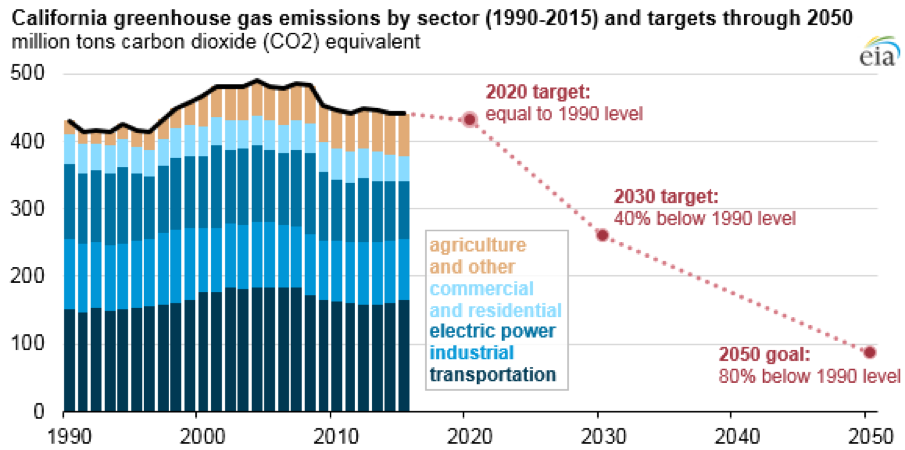
California's program to curb carbon emissions could actually make it much easier to inflate the emissions reductions reported or even increase the amount of greenhouse gases released into the atmosphere. The way that the state hopes to control carbon emissions is by limiting the amount of carbon emissions that big carbon-producing businesses can have and purchasing offset credits from other small businesses (such as farmers, landowners, etc) that have altered their practices in order to be more environmentally friendly. However, these secondary businesses could easily overstate by how much they are reducing their emissions, or not switch their practices at all and still continue things like logging; since the state has no set program in place to verify this, we could end up actually increasing the negative impact to the environment.
The program also causes concern for methane emissions, as it lets polluting companies buy credit from coal companies for working toward reducing methane emissions or dealing with them in a way other than just releasing them into the atmosphere. However, this also lacks structure as it allows for mines to stay open for longer and even expand if they simply overstate the baseline amount of methane that they would release, therefore overstating the amount by which they reduced emissions as well. Similar concerns arise from the US Forest Project's protocol, which has overstated the amount of carbon reduction by 80 million tons of carbon dioxide.
This program is not the only one that has caused concern. Although the state depends on this program to vastly reduce emissions, this program, as well as ones from the UN and other international forestry programs that provide credit for emission reductions, can actually increase the amount of emissions and help polluting businesses stay in business for longer and have even more emissions because of lack of supervision.
1. In this instance, should the federal government intervene in California's program to curb carbon emissions? Or should states have the power to decide their own environmental regulations?
2. Based on the information about the graph presented above, how much will California's carbon offset program help to reduce the state's overall carbon emissions, if all goals of the program are met?
3. Overall, there is no easy solution to reducing carbon emissions. What are one or two things you could change about this carbon offset program that could potentially help California reach its goal or have the program work as intended?
-Inés Escobedo

Steven Yarmolinsky
ReplyDelete1. While some powers are delegated to the states, environmental regulations should be enforced by the federal government. If the government does end up getting involved, they should do so in every state and not just California. Across the country, the EPA should get involved and begin to issue environmental regulations.
2. Based on the graph and information presented in the article, California's carbon offset program will help reduce the state's overall carbon emissions by about 350 million tons CO2 equivalent in 2050, which is equivalent to 80% below the total amount GHG emission in 1990.
ReplyDelete1. Environmental regulations should be enforced by the federal government. The states don't have enough money to push regulations and the EPA should get involved in environmental matters rather than leaving the states to it.
ReplyDeleteConsidering California’s program will actually let big carbon-producing businesses increase their emissions, the federal government should intervene in order to ensure that emissions are cut. However, in our current political climate, I doubt that would occur. Advocates like Greta Thunberg have brought environmental issues to the attention of the public, and hopefully future politicians will make reducing carbon emissions a top priority.
ReplyDelete1. Since the environmental effects aren't limited to the California, the federal government should step in and place regulations on these practices. This would also encourage other states with similar practices to reassess their impact on the environment and make the appropriate change.
ReplyDelete-Juwon
DeleteEthan Gardner
ReplyDelete1. States should have the power to regulate their own environmental regulations, with general oversight from the federal government. I think this falls under the category of concurrent powers, as the federal government should set general environmental regulations while the states should be able to create more specific rules. In this case, the federal government should not intervene, as the California legislature has voted on this and it has been passed within the state. Although some of the outcomes could be negative, the intent is good.